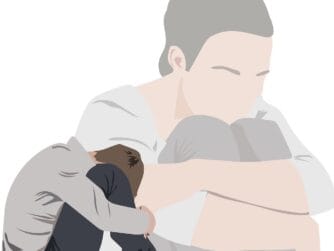Voice 1
Welcome to Spotlight English. I’m Andrew Devis.
Voice 2
And I’m Gillian Woodward. Spotlight uses a special English method of broadcasting. It is easier for people to understand, no matter where in the world they live.
Click here to follow along with this program on YouTube.
Voice 1
William Post did not have an easy life. His mother died when he was young. After that, his father sent him away. When he grew up, he worked any job he could find. One day, William had only 40 dollars. He decided to spend all 40 dollars on a chance to win a lot of money in the lottery.
Voice 2
William Post’s life changed that day. He won 16 million dollars! He thought his life would now be perfect. But later he described his win this way,
Voice 3
“Every person dreams of winning money. But no one understands the problems. They come from places you cannot even see.”
Voice 1
William’s life did change after winning, but in a bad way. He spent a lot of money on things he did not need. He bought houses, cars, and televisions. Everyone began to ask him for money. People even took him to court to get it. William lost all his money. He was one million dollars in debt by the time he died. He told reporters that the money did not make his life better or easier. “I was much happier when I did not have any money.”
Voice 2
Today’s Spotlight is on the lottery. Lotteries are a popular kind of gaming. There are different ways to decide the winner of a lottery, but the basic rules are the same. People buy a ticket or piece of paper with numbers on it. Then the winning numbers are chosen by chance. If your numbers are the same as the winning numbers, you receive the prize money.
Voice 1
There are lotteries all around the world. Many lotteries are managed by the government. Most of these lotteries give some of the money raised by ticket sales for education, roads, or other government programs. In large lotteries, this can be millions of dollars.
Voice 2
However, some people argue that these lotteries do not help countries as much as they seem to. These people admit that lotteries provide money for social programs. But a government may not give as much tax money to social programs because of the lottery money. Then, if the lottery stops, or if people play less, the programs will not survive. Valerie Strauss is a reporter. She spoke to the Washington Post about lottery funding in the United States:
Voice 4
“Instead of using the money as extra funding, the government has used lottery money to pay for the education budget. They spend the money that would have been used had there been no lottery cash on other things.”
Voice 1
But government lotteries are not the only kind of lottery. There are also illegal lotteries. People print pieces of paper that look like real lottery tickets. But they never declare a winner. They keep the money. Other illegal lotteries may declare a winner, but only award a small amount of the money collected. Because illegal lotteries are not managed by the government, the people running them can do whatever they want.
Voice 2
More and more, illegal lotteries are using the internet. A person may get an e-mail or text message inviting them into a world-wide lottery. Sometimes the e-mail says that the person has already won! They only need to go to a website and buy a chance to win. But like the lottery with false tickets, this illegal lottery will not give anyone prize money.
Voice 1
Imagine you had an extra ten dollars each week. You are thinking about playing a lottery. The idea of winning millions of dollars is tempting. You could do a lot of things if you won. You could help a lot of people. And it would be nice not to have to worry about earning money. So, is it a good idea for you to play that lottery?
Voice 2
It is important to understand the chances of winning. The reason that most lotteries can offer so much money is because the chance of winning is so small. One of the largest lotteries in the world is called Mega Millions. It only costs one dollar to play. And it offers very large prizes. However, the chance of winning the highest prize is one in 290 million. To win a smaller prize, like 200 dollars, the chances are a little better: one in 14,000.
Voice 1
Here is a comparison. A person is more likely to be hit by lightning or to be killed by a dog than to win the lottery. For every kilometre a person drives in a car, they are six times more likely to be killed than to win a lottery like Mega Millions.
Voice 2
If there is so little chance of winning, why do people continue to play? One reason is that many lottery games have additional prizes of one or two dollars. When people play the lottery, these small wins make them feel good. They remember the wins and forget the losses.
Voice 1
Also, studies show that poor people buy more lottery tickets than rich people. Many poor people do not understand how unlikely it is they will win. Even if they do, they may play the lottery anyway. It may be that poor people do not have the resources to help themselves. They may play the lottery for an emotional reason. They may see the lottery as their only hope for a better future. David Just is a teacher of economics at Cornell University. He told CNN:
Voice 5
“It is an investment. It may not be a good investment but… To people with limited resources, this may be the only way that they have to sort of dream big. To think that something, something great is going to happen. Something that will just change everything.”
Voice 2
But the lottery is not the only thing people can do with money. Over a long time, saving money can add up. If a person took the ten dollars, they spend on lottery tickets and saved it, after 20 years they would have over 10,000 dollars. If those 10,000 dollars was invested wisely, it could increase to 30,000 dollars. This is not millions of dollars, but it is real money! And it could help pay for a home or an education.
Voice 1
Everyone wonders what will happen in the future. We think that by winning the lottery, we will know that our future will be great. But money cannot prevent accidents from happening. It cannot stop people from getting sick. The story of William Post shows that money can solve some problems, but it causes other problems.
Voice 2
What do you do when you worry about the future? Do you think about money? What else helps assure you about your future? You can leave a comment on our website at www.spotlightenglish.com. You can also find us on Youtube, Facebook, Instagram, and X. You can also get our programs delivered directly to your Android or Apple device through our free official Spotlight English app.
Voice 1
The writer of this program was from the Spotlight Team. The producer was Michio Ozaki. The voices you heard were from the United Kingdom and the United States. All quotes were adapted for this program and voiced by Spotlight. This program is called, ‘The Lottery: Big Money or Big Problem’.
Voice 2
We hope you can join us again for the next Spotlight program. Goodbye.
Question:
What do you do when you worry about the future? Do you think about money? What else helps assure you about your future?








Yes
Hello,
When I worry about the future I try to make an effort and give the best of myself- not only in those moments but always- even though we know that the future is uncertain, I proved this during the COVID pandemic, when I was struggling to support a house, job, and to provide myself and my family. Suddenly everything changed, I’m no saying it was entirelu bad but never thought I’d return to my village and yet here I am.
I think about money only because money is necessary to survive. There are many things to pay for, and now a days everything is really expensive.
In my opinion what truly matters is doing well at work. As my grandpa used to say ” the best lottery is work and good economics” and let me tell you, he was right.
Thanks for your thoughtful comment!